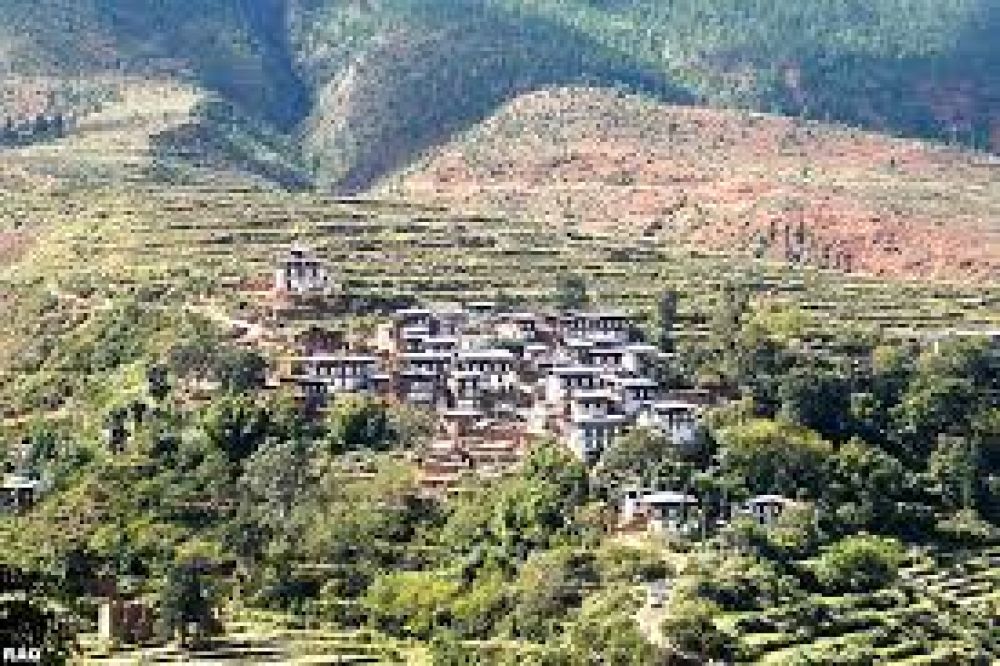

Located opposite the majestic Wangdue Phodrang Dzong, the ancient village of Rinchengang is steeped in history and traditional Bhutanese charm, attracting tourists worldwide to its rustic beauty and preserved heritage.
The tourism journey for Rinchengang Village began with the rise in popularity of Bhutan as an exclusive travel destination. Bhutan opened to modern-day tourism in 1974 when the government began to promote the country's unique culture and traditions under a controlled tourism policy- 'High Value, Low Impact.'
Rinchengang, with its traditional mud-and-stone houses staggered up a hillside, offered an authentic and untouched view into the Bhutanese way of life. It became a place of interest for tourists seeking a more profound cultural experience away from mainstream attractions. Interest in Rinchengang grew as intrepid travelers shared stories of the welcoming locals and the village's stunning natural setting.
As the interest grew, Rinchengang gradually started to offer more direct experiences for visitors. Local homes opened their doors to tourists, providing homestays that allowed an immersive experience into the everyday lives of the villagers. The community has thrived by showcasing traditional arts, such as their renowned method of stone masonry, which is said to be the finest in Bhutan and was integral to the construction of numerous Dzongs across the country.
With time, guided village walks and interactions with local craftsmen further enhanced the tourist experience, allowing visitors to understand and appreciate the nuanced way of life in Rinchengang.
In recent years, Bhutan has seen an increasing trend in sustainable and responsible tourism, with Rinchengang standing as a prime example. Visitors are now more than ever looking for authentic experiences that also contribute to the conservation of the environment and the welfare of local communities.
Eco-tourism initiatives have taken root, ensuring that the natural and cultural riches of Rinchengang remain unspoiled for generations to come. Tourists are encouraged to participate in cultural preservation activities, and there is an increased emphasis on the understanding and respect of local customs and traditions.
Community-led tourism has emerged as a trend, where visitors can join local festivals, crafts sessions, and traditional games, thereby directly benefiting the local economy and enabling a genuine cultural exchange.
Looking ahead, Rinchengang is poised to grow as a sustainable tourism model within Bhutan. The village is increasingly integrating itself into larger eco-tourism circuits, which allows for a broader, coordinated approach to visitor engagement and conservation efforts.
With Bhutan's continued commitment to sustainability and the promotion of 'Gross National Happiness,' Rinchengang stands as an enduring testament to the charm and resilience of Bhutan's rural heritage. Ultimately, the future of tourism here looks as bright and inspiring as the panoramic vistas the village enjoys over the lush valleys of Wangdue Phodrang.